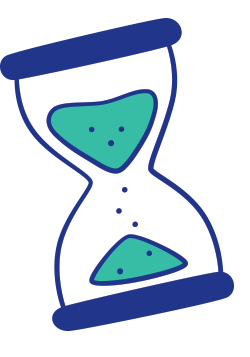Coronavirus disease 2019 also known as Covid-19

Coronaviruses are a family of viruses that can cause disease in humans and animals. In humans, several coronaviruses can cause respiratory infections ranging in severity. These range from a plain cold to more severe disorders.
In January 2020, a new coronavirus was discovered in China that causes the coronavirus disease 2019 (COVID-19.
Covid-19 Symptoms
The initial symptoms appear, such as headaches, a dry cough or fever. The loss of taste and smell, as well as the occurrence of a skin rash, such as hives may be connected to symptoms of the new coronavirus. In the event of these symptoms, the first thing to do is contact your doctor. The doctor makes their diagnosis and subsequently refers the patient. Healthcare professionals advise on what action to take; either the patient is transferred by ambulance or they remain at home. Doctors then regularly call the patient to check on them.
How is the patient treated ?
COVID-19 patients can be treated at home or in hospital. When the patient is admitted to hospital, they may be given respiratory support if necessary. In the most severe cases, an artificial coma may be induced followed by intubation. Patients who have undergone this type of treatment are monitored for several days in hospital and then sent home. This mainly affects at-risk people. It should be noted that 98 % of infected people with the new coronavirus recover However, it will take several weeks for people who had a respiratory emergency to recover. Indeed, they may be tired and have a persistent cough.
How to protect yourself from COVID-19 ?
Without control and protection measures, there is a high risk of person-to-person contamination with coronavirus.
It is possible to reduce this risk through simple actions (barrier measures):
- Frequent hand washing with soap and water or a hydroalcoholic solution. Washing kills the virus if it is on your hands.
- Cough or sneeze into your elbow or into a disposable tissue.
- Only use single-use tissues and dispose of them in the bin after use.
- Stop shaking hands and kissing when greeting others.
- Do not put your hands to your mouth, nose, or eyes. If the virus is on your hands, it can enter your body through these orifices.
- Stand more than one metre away from a person who is coughing or sneezing. If you stand less than a metre away, you can inhale droplets containing the virus (if the person is a carrier).
- Stay at home if you have COVID-19 symptoms.
- Find out which areas the virus is actively circulating in and avoid going there.
- Wear a mask when you leave home.
- Ventilate confined rooms.
If someone you know is infected, avoid contact with them during their quarantine period. If you have been in contact with them, you should stay at home for 7 days as well as any people you have been in contact with
Activity for children
Ask the following questions, the correct answer is in green.
Q1. Is epilepsy contagious ?
A. Yes
B. No
Q2. What disease can you catch from a mosquito ?
A. Diarrhoea
B. Covid-19
C. Malaria
Q3. Loss of taste and smell can be a symptom of which disease?
A. Tuberculosis
B. Covid-19
C. HIV-AIDS